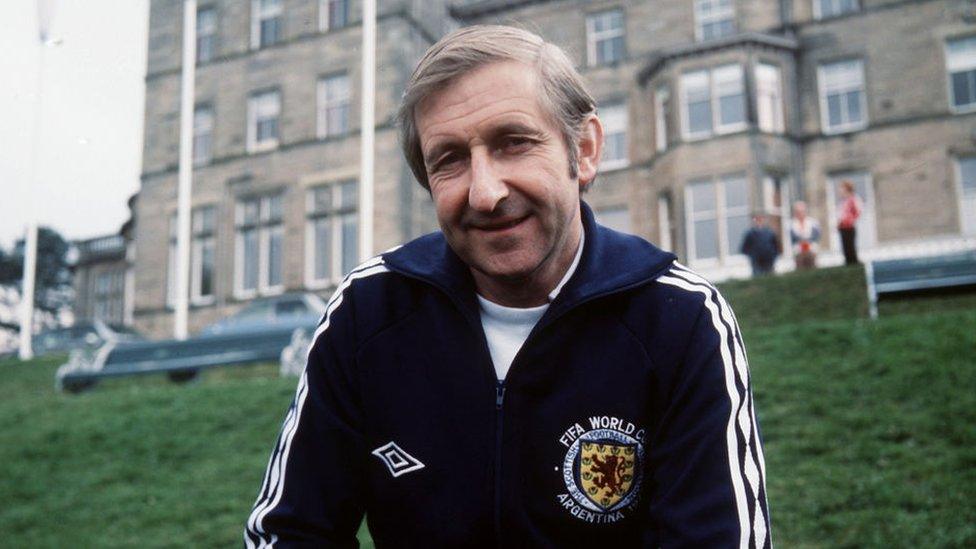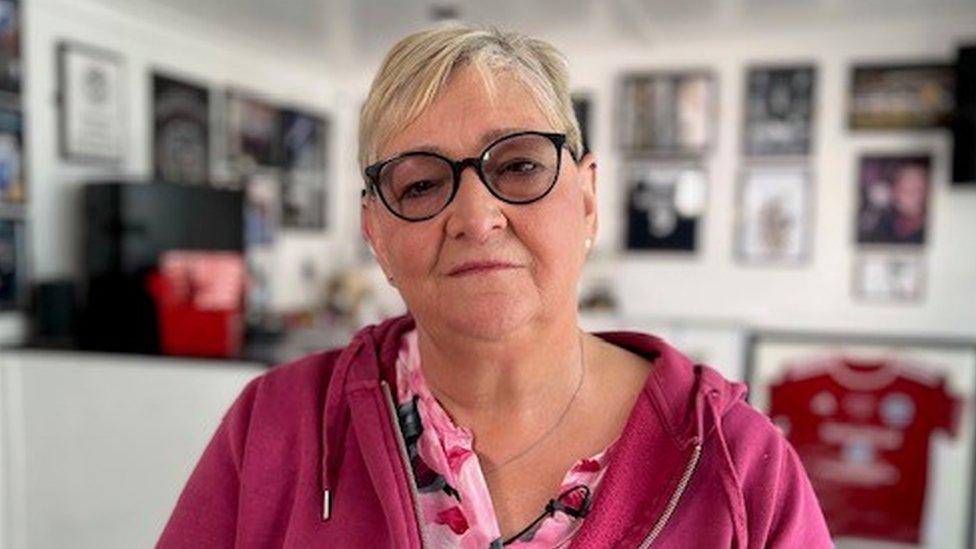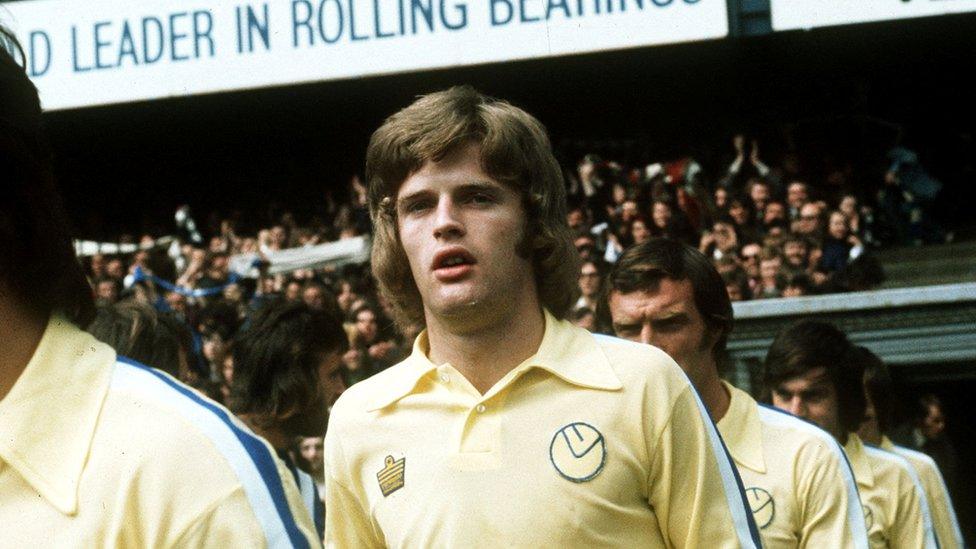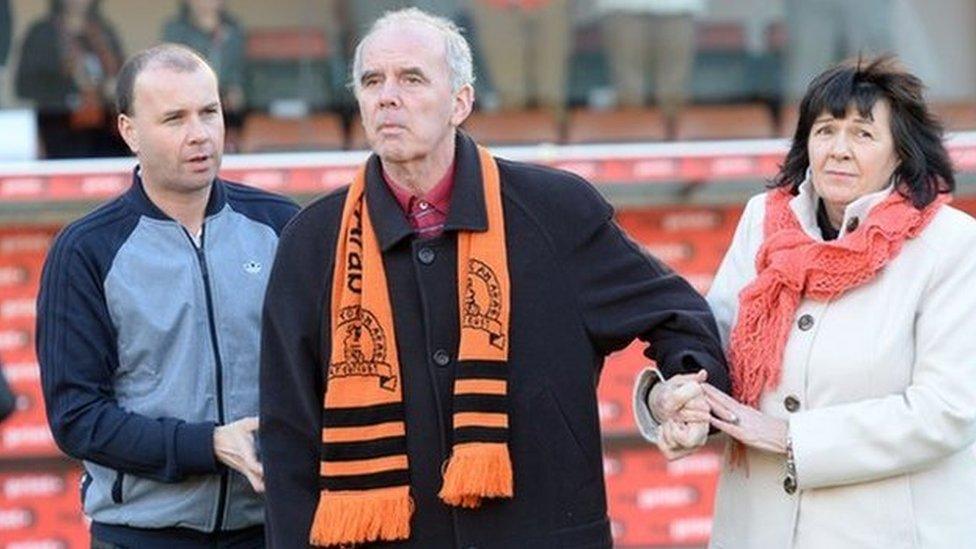Dementia in football: Ally MacLeod's family call for heading ban
- Published

Ally MacLeod died of dementia in 2004
The daughter of former Scotland football manager Ally MacLeod has called for a complete ban on heading the ball over fears it leads to dementia.
Gail Pirie is joining the families of other former players to demand changes to protect future generations.
Her father died of the disease aged 72 in 2004.
He played for Hibernian and Ayr before leading Scotland to the 1978 World Cup in Argentina.
Recent research found that former professional players are three-and-a-half times more likely to die of degenerative brain disease.
"It was probably in his early sixties that we realised something was wrong," Gail said.
"We really tried to protect him from the news getting out but actually when his condition was made public, the people of Ayr really looked out for him.
"He was a bit of a wanderer and the police once picked him up trying to walk to Glasgow to see his mum.
"A bus driver also took him home one day when he tied to get on the bus to Glasgow - everyone was so understanding."

Gail Pirie has joined families of other former players in calling for a ban on heading
Her father spent 11 years as manager of Ayr United before moving to Aberdeen and eventually his dream job with the national team.
He took Scotland to the World Cup finals in Argentina in 1978 and his optimism convinced a nation they could go all the way.
But they failed to qualify past the group stages after a defeat to Peru and a draw against Iran.
"He lost his spark for a while after that - he wasn't the same man," said Gail.
But she now believes it's the time her father spent heading the ball as a player with teams such as Third Lanark, Blackburn Rovers and Hibernian that did the most damage.
"My mum told me that he had a couple of bouts of concussion during his career, but in those days you were straight back out again the following week.
"It wasn't until the death of (former Celtic player) Billy McPhail from dementia that we started putting two and two together.
"Then we just started hearing about so many former player of my dad's generation who were dying young from the disease."

Scotland and Leeds defender Gordon McQueen died in June
A number of former high-profile players including Billy McNeill, Jack Charlton and more recently Gordon McQueen, died after suffering with dementia.
Researchers at Glasgow University led by professor Willie Stewart found that former professional players were three-and-a-half times more likely to die from neurodegenerative disease than the general population.
Heading restrictions have been introduced by the FA and the SFA, including limiting headers during training, and funding for new research has been made available.
But Gail doesn't think the measures go far enough.
"I'm now involved in a campaign called Heading Out and the ultimate aim is to have heading banned in football.
"I know it's a big ask but it's something that has to be looked at.
"I understand that it will totally change the way we know the game at the moment but I think it has to be done and I think it will be done."
'Duty of care'
The Heading Out campaign is founded by broadcaster Mike Edwards and backed by Amanda Kopel, the widow of Dundee United legend Frank Kopel, who died aged 65 following a battle with dementia.
She said a complete ban on heading the ball would be a small change in the rules of the game and clubs have a duty of care as employers to protect their employees' health.

Frank Kopel was diagnosed with dementia and Alzheimer's in 2009, leading to wife Amanda's campaign
She said: "I think that going through what Frankie and I went through in the six years that he battled dementia, it was horrible to watch. Heading that ball actually cost him his life at the end of the day.
"You cannot put a price on a person's life and it does pain me when I hear of different players in Frankie's era coming forward and being diagnosed with dementia."